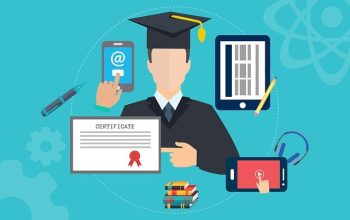The global shift to remote learning, catalyzed by COVID-19, has prompted educational institutions and local tutoring services to innovate, leveraging online education solutions for continuity and accessibility. This digital transformation has led to hybrid models combining personalized instruction with platform flexibility, adapting to the new demands of mainstream remote learning. While online learning offers advantages like global access and tailored paths, challenges include lack of physical interaction, self-discipline requirements, and technology barriers, especially in underserved communities relying on local tutoring services to bridge the digital divide.
In today’s digital age, remote learning has surged due to global events, transforming education landscapes. This article explores the rise of online education solutions, delving into both the benefits and challenges compared to traditional settings. We examine local tutoring services and their adaptation to digital platforms, highlighting innovative tools enhancing remote support. Furthermore, we provide strategies for educators to create effective online learning environments, fostering engagement and community-building through interactive elements and feedback mechanisms. Discover how local tutoring and education services are revolutionizing learning experiences.
- The Rise of Remote Learning and Its Impact
- – Exploring the shift to online education during global events
- – Benefits and challenges of remote learning compared to traditional settings
The Rise of Remote Learning and Its Impact

The shift to remote learning has been unprecedented, accelerated by global events that have confined people to their homes. This sudden transformation has pushed educational institutions and local tutoring services to adapt and innovate. The rise of online education solutions has not only facilitated continuity in learning but also expanded access to quality education beyond geographical boundaries. Students can now connect with tutors and educators from around the world, enjoying personalized instruction tailored to their needs.
This digital shift has profound implications for local tutoring and education services. Traditional face-to-face tutoring has been supplemented—and in some cases replaced—by virtual sessions, leveraging video conferencing tools, interactive whiteboards, and educational software. This evolution ensures that students can continue to receive personalized attention while maintaining social distancing. As remote learning becomes more mainstream, local services are also evolving, integrating technology to offer hybrid models that blend the best of both worlds: the individualized support of one-on-one tutoring with the flexibility and accessibility of online learning platforms.
– Exploring the shift to online education during global events

The shift to online education has been significantly accelerated by global events, transforming the landscape of learning. As schools and universities closed their doors to prevent the spread of COVID-19, educational institutions had no choice but to adapt quickly. This sudden change highlighted the necessity for robust digital infrastructure and innovative teaching methods. Local tutoring and education services, traditionally focused on in-person interactions, were forced to transition online, ensuring continuity in learning despite physical distances.
This crisis has brought about a rapid and wide-reaching digital transformation in the education sector. Teachers and students alike had to embrace new platforms and tools, ranging from video conferencing for live classes to Learning Management Systems (LMS) for distributing course materials and facilitating interactions. The shift not only emphasized the importance of online learning solutions but also exposed opportunities for enhancing educational experiences through technology, even beyond the context of global events.
– Benefits and challenges of remote learning compared to traditional settings

Remote learning, facilitated by online education solutions, offers a unique set of advantages compared to traditional classroom settings. One of the key benefits is accessibility; students from diverse geographical locations can attend classes and access educational resources without the need for travel. This flexibility is especially beneficial for those with busy schedules or those residing in remote areas who may not have access to local tutoring and education services. Furthermore, online learning allows for a more personalized experience, where students can often tailor their learning paths according to individual needs. Interactive tools and platforms enable real-time communication between educators and learners, fostering engagement and support.
However, remote learning also presents certain challenges. The lack of physical presence in a classroom setting can make it harder to establish social connections and collaborative dynamics among students. Additionally, self-discipline and time management become crucial skills for students, as they must stay motivated and organized without the structure provided by traditional education settings. Accessing reliable technology and a stable internet connection is another potential hurdle, particularly for those in underserved communities who may rely on local tutoring and education services to bridge this digital divide.
As we navigate a rapidly evolving educational landscape, online learning solutions have become indispensable, especially for local tutoring and education services. The global events of recent years have accelerated the shift towards remote education, revealing both its immense potential—such as flexibility and accessibility—and challenges like technical barriers and social isolation. By understanding these dynamics, educators and service providers can develop innovative strategies to enhance remote learning experiences, ensuring that students receive a high-quality education despite physical distances. This holistic approach not only adapts to the present but also prepares us for future disruptions, fostering resilient and adaptable learners.




